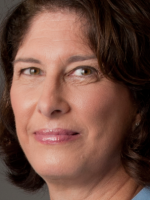Democratic candidates vying for the White House deplored the hours-old U.S. Supreme Court's decision Thursday forbidding schools to consider race as a remedy for diversity.
The debate, the first intended to address issues central to African-Americans, tackled issues of poverty, education, criminal justice, genocide in Darfur, taxes, outsourcing jobs, and the frail response by the Bush administration to Hurricane Katrina.
But the earlier news that the Supreme Court ruled 5-4 that schools could not used race when assigning some students in an effort to end racial isolation and prevent re-segregation led the third debate of all eight candidates.
It was held at Howard University, a historically black institution in Washington, D.C.
Sen. Barak Obama of Illinois, a frontrunner and only African-American in the race for president, reminded the crowd that it was on the school's campus that then-attorney Thurgood Marshall and his legal team developed arguments that won the landmark school desegregation case Brown v. Board of Education in 1954. Marshall later served on the U.S. Supreme Court.
"If it had not been for them, I would not be standing here today," he told the crowd, which included a number of prominent black leaders, including Marian Wright Edelman, Al Sharpton, Dorothy Height, Cornel West, and others.
Massachusetts Gov. Deval Patrick, the country's only black governor, introduced the candidates.
"The progress we have made is not good enough," Obama continued. "It is absolutely critical for us to recognize that there are going to be responsibilities on the part of African-Americans and other groups to take personal responsibility to rise up out of the problems that we face. But there has also got to be political will in the White House to make that happen."
New Mexico Gov. Bill Richardson also made it personal.
"Issues of diversity, for me, the first Latino to run for president, aren't talking points; they're facts of life."
There was little mention of Iraq, the biggest source of contention between the candidates.
Rather they were agreed on just about every issue, quick to point out disparities and offer solutions.
Sen. Hillary Rodham Clinton, of New York, the only woman and a serious candidate, resonated with the audience after comments that raised the inequality in AIDS treatement.
"Let me just put this in perspective: If HIV-AIDS were the leading cause of death of white women between the ages of 25 and 34 there would be an outraged, outcry in this country."
Clinton took every opportunity to recall for the audience her accomplishments in the Senate as well as that of her husband, former President Bill Clinton.
"If we don't begin to take it seriously and address it the way we did back in the '90s when it was primarily a gay men's disease, we will never get the services and the public education that we need," she continued.
There's a fierce contest for African-American votes, a bloc that traditionally favors the Democratic Party.
About one in 10 voters in the 2004 election were black, according to exit polls, and they voted 9-to-1 for Democrat John Kerry. In some states, blacks make up a bigger share of the voters. In South Carolina, for example, blacks made up about 30 percent of the electorate in 2004, but were more than half of the voters in the state's Democratic primary.
Each candidate got to answer every question for the same amount of time. There were no follow-up questions nor were the candidates prompted to engage each other.
Former Sen. John Edwards of North Carolina, a millionaire, agreed that the wealthy should pay higher taxes and cut a break to poor and middle class.
"People who have done well ought to have more responsibility to pay back to the country," he said. "We have a capital-gains rate — 15 percent — which is the rate that most pay on their investment income, like Warren Buffett. That's significantly lower than the tax rate that his secretary pays; that's not right. There is a moral disconnect. We ought to honor work in this country, not just wealth."
Edwards has made income inequality the centerpiece of his campaign.
Sen. Joseph Biden of Delaware (along with the other candidates) wants to get rid of President Bush's tax cuts for the richest Americans too.
"It's the first time in our history since we had the federal income tax that we're in a position where those who are the wage-earners are paying a bigger chunk than they should. It's got to shift back," Biden said.
With additional reporting from The Associated Press
Copyright 2022 NPR. To see more, visit https://www.npr.org. 9(MDAzMjM2NDYzMDEyMzc1Njk5NjAxNzY3OQ001))






